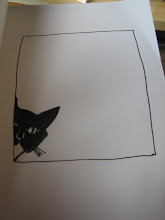
My first postcolonial post!
I finished this a couple of days ago, and whilst I mostly had my "fun" reading hat on whilst reading it, I also kept straying into thinking about it in terms of work.
First off, it's fantastic and I heartily recommend it. Animal's People is based vaguely upon the Bhopal chemical disaster, for which the multinational Union Carbide has evaded charges of corporate manslaughter for over 25 years. In spite of the subject matter it is caustically funny, engaging and also, in parts, affecting. It has some sharply satirical, politicised teeth. And I'm tempted, now, to write about it.
Particularly in conjunction with the project I start work on in October. The project is based at Kent, led by Caroline Rooney and called Radical Distrust:Radical Distrust: A Cultural Analysis of the Emotional, Psychological and Linguistic Formations of Religious and Political Extremism. The project aims to examine the breakdown in trust between citizen/state in the postcolonial period, arguing that this breakdown results in a rise in extremism, oppression and violence from both sides. Regions to be looked at include: Southern Africa, Israel/Palestine and Egypt. It's a fascinating premise and I'm excited to be part of it as Research Associate.
I was thinking about the project vaguely whilst reading Animal's People, and another text - Mohsin Hamid's The Reluctant Fundamentalist. In tone, the two novels are very different. But they both develop a similar narrative conceit, positioning the reader very self-consciously as the "Western" "Other" and both, to me, seem to address this notion of radical distrust (the way the narrative technique specifically works to explore this idea is something I'd like to explore in detail). Except, what's striking is that in both texts, the "state," is a noticeable absence. Rather, the confrontation at the heart of both novels is between the very local and the giant multinational (the big US corporation that the narrator works for in RF, the Kampani in AP). In both, the "nation-state" is seen as remote, out of touch with local needs and impotent against the force of global capital.
This doesn't necessarily contradict the argument of the project - in fact, the nation-state's apparent remoteness may confirm that a near-irreparable breakdown in trust has taken place, to the point where it hardly figures at all in its citizens' lives (but I'm hesitant to really assert this due to my own ideological leanings). But I think it does call for a closer examination of how the flows of global capital have impacted upon the relationship of trust that exists between citizen and state. If the state makes promises to its citizens, only for these to be dashed by multinationals, where is the frustration and violence that is provoked directed? If multinationals exert pressure on the state to control its citizens' behaviour, can the state protect its citizens' freedoms, or must it yield?
Stuff for further thought...


Thanks for your comments about Animal's People -interesting. I've got it on my 'to read' pile...
ReplyDeleteSounds like such an interesting project Naz! I haven't started reading the 'Reluctant Fundamentalist' yet but I read Mohsin Hamid's other book, 'Moth Smoke' which was very surreal and slightly depressing to be honest. I will be keeping Animal's People on my reading list. x
ReplyDeleteI agree, the project itself sounds fascinating. It's also interesting to observe the equal clash of the strangled root of religion within a secular society and whether this too leads to extremism. Anyway, I'll definitely check out the book although I'm trying to clear 'The Gargoyle' in 2 days so I can start and finish 'The Road' before too much film publicity stunts my enjoyment!
ReplyDeleteRLG: I'd recommend Reluctant Fundamentalist - it's quite sombre in tone, but a very compelling narrative. A very quick read but thought-provoking too.
ReplyDeleteHM: hi! How are you finding The Gargoyle? I'd like to read The Road as I love All The Pretty Horses, it is so beautifully written. But first I have The Book of Lost Things, The Sea of Poppies, The Inheritance of Loss and Half A Yellow Sun to clear myself!